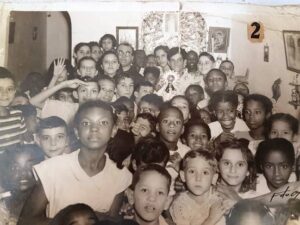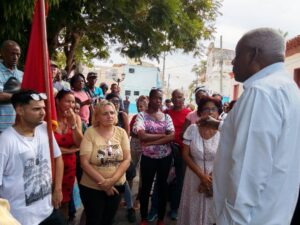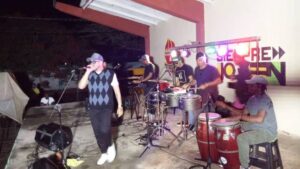For a more just world (+photos and audio).
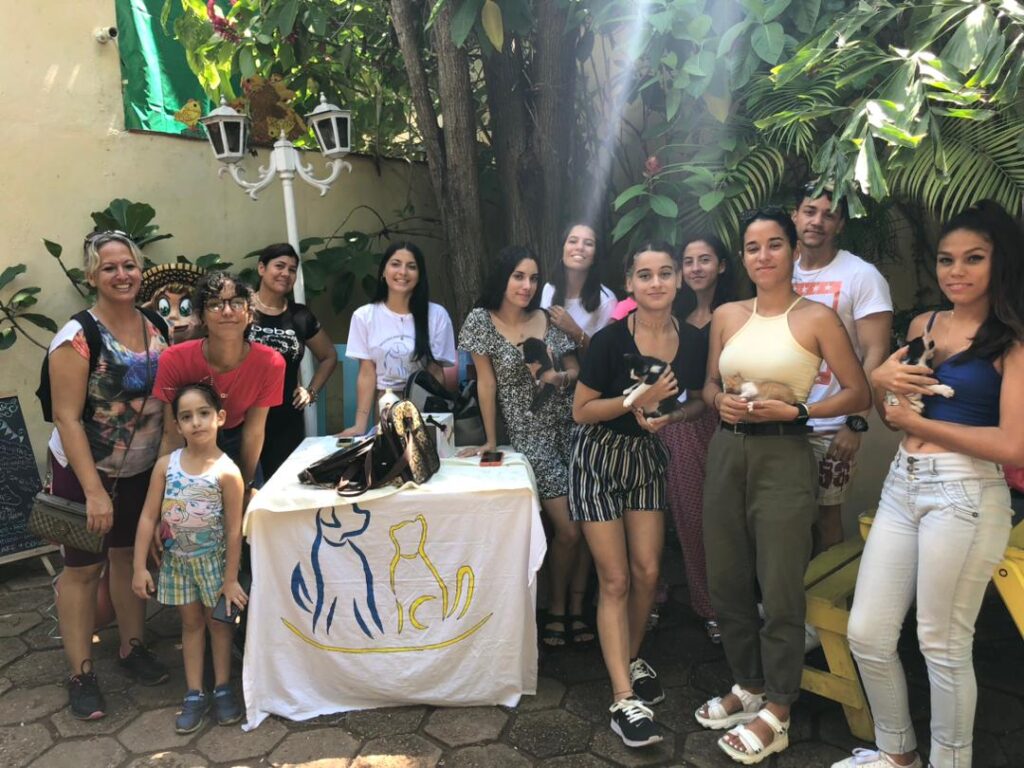
Taking care of endangered species, companion animals and animals used as a means of work is a challenge for all countries in the world.

Taking care of endangered species, companion animals and animals used as a means of work is a challenge for all countries in the world.
The first World Organization for Animal Health (OIE) standards on animal welfare were published in 2004 in the Terrestrial Code and in 2008 in the Aquatic Code. These science-based chapters are regularly updated in line with evolving scientific knowledge and new standards are developed to cover various aspects of welfare in different species.
The first OMSA standards dealt with the transport of animals, their slaughter and killing for disease control purposes. Other standards were later developed on the use of wildlife in research and education, the management of dog populations and the welfare of working equids.
There are worldwide standards for the care of the different species and, based on them, each country has the obligation to develop its own laws. In Cuba, a law for the protection of animals was approved for the first time on February 24TH, 2021: Decree-Law N°31/202 – On Animal Welfare.
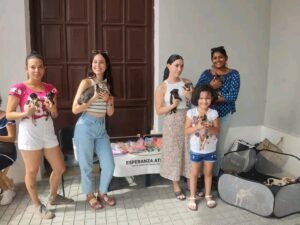
The state promotes, through this law, the protection and care of all animal species, the operation of an Animal Health System, which allows veterinary care at all levels, the prevention of diseases and zootechnical management of animals; and the development of the general integral culture of the population in relation to the care and protection of animals.
If the law is not complied with, there is a group of sanctions that will be applied such as: fines of 1500 CUP, 1000 CUP and 500 Cuban pesos for natural persons and 4000 CUP, 3000 CUP and 2000 Cuban pesos in the case of legal persons, depending on the infraction committed.
The animal may also be confiscated or the licenses, permits or authorizations granted may be temporarily or definitively suspended.
The state is not the only one responsible for making the population aware of the protection of animals, every individual in society must have this commitment.
…ONLINE AUDIO
As a result of this commitment, several non-governmental organizations have emerged in the country to promote animal protection.
In the province of Matanzas there are projects that support the care and protection of animals from different angles. One of the most outstanding for its actions and presence in society is BAC Matanzas Esperanza Atenas.
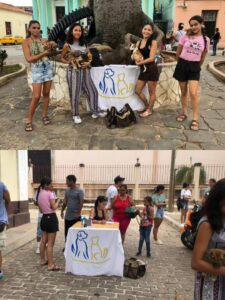
BAC Matanzas Esperanza Atenas, founded four years ago, fights tirelessly for the protection of animals. The adoption fairs are one of the project’s activities with the greatest impact on the population of Matanzas. These take place at the Conservator’s Office and are held monthly, although they vary depending on the number of reports.
The project is self-financed and although there is notable support from the population in terms of donations of medical supplies, money, and even clothes and books to raise more funds for the benefit of the project, the project has material shortages on rare occasions.
In spite of the setbacks due to the unavailability of resources, medicines and economic solvency, the project has the support of other organizations that have the same purpose. The point is not to make one project stand out over another, but rather to work together for a just cause, providing all the support needed.
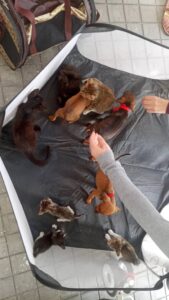
BAC Matanzas does not have a shelter to shelter all these animals that are rescued. In the future they would like to have a place for this purpose, but for the moment it is difficult for them to assume these expenses. Their shelters are the homes of the members of the project themselves.
Does the Animal Welfare Law reflect any change for BAC Matanzas?
«We don’t see any major changes. There are many people who do not know about it and when cases of animal mistreatment occur, they do not resort to the law because they are not aware of its existence. However, another reason for not denouncing these behaviors is the close relationship they have with the abusers, being their neighbors, friends or relatives», stated Lorena Montes Peña, Coordinator of the BAC Matanzas Esperanza Atenas project.
The project’s task is to make the decree visible through direct contact with the people who attend its activities. In addition, they share information on their official profiles about the tools provided by the decree to protect animals, there they facilitate contacts and ways to make complaints.
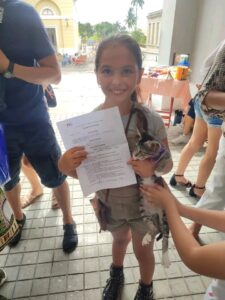
«We appreciate the support of the people who take the time to share, constantly our posts, especially those who denounce aggressions, which conditions to a greater speed to solve them.
«Despite the loopholes in this law due to the lack of feedback and its recent implementation, it is a very viable option to eradicate bad actions against animals».
The visibility that the project has and the treatment it gives to the law helps substantially to the decrease of animal abuse in the province.
«We possess the merit of having solved to this day, many cases of animal abuse. We talk about regulations and punishments and they really weigh on the aggressors, the law backs us up. We carry out each mission as seriously as possible and we grow with everyone’s help».
Are you interested in joining BAC Matanzas Esperanza Atenas? You can contact the project from their official profiles on Facebook and Instagram. Join the task of saving lives, all support is welcome.
Written in collaboration with Daniela Licort Prieto and Maxdiel Hernández, Journalism students.


